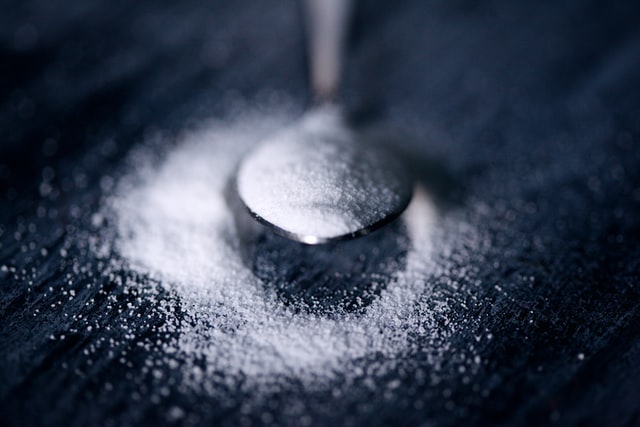Soju is the most popular alcoholic drink in Korea. Its name is derived from the Korean words for “burned liquor”, and it’s made from fermented rice, barley or sweet potato. Many Koreans turn to soju on special occasions, like family events, and order it at restaurants. But is this potent drink actually fattening? And does drinking too much soju make you fat?
Does soju make you gain weight?
The calorific content of soju is affected by the ingredients, brewing method and alcohol by volume of the beverage.
At an alcohol content of anywhere from 15% up to 40% alcohol by volume, plus the ingredients mentioned above, drinking soju in anything more than moderation definitely won’t help your waistline.
Even though soju does contain fewer calories per mililitre than the likes of beer, it has a higher alcohol percentage.
Couple that with the fact that you might get through a couple of bottles in a sitting – see How much soju does it take to get drunk? – meaning you might consume 800 to 1,000 calories in soju alone in one night.
Can soju make you fat?
Drinking soju can absolutely contribute to making you fat, but it probably won’t be the only factor.
When people go out on the town in Seoul, they often drink soju alongside fattening foods like fried chicken.
Add this together with the calorie content we’ve already talked about, and you can easily see the potential for a negative impact on the fit of your clothes.
This can quickly add up for those of us who like to drink soju every week!
We’ve written more about this in our article about how many calories soju has – just click the link to find out more.

Can soju help you lose weight?
Dietitians would agree that, if you want to lose weight, drinking soju won’t help.
Korean-led research published in the American Journal of Clinical Nutrition, which studied 3,833 Koreans, noted that heavy drinkers are more likely to develop metabolic syndrome, whose symptoms include obesity.
This analysis also noted that, even in light and moderate liquor drinkers, the risks were slightly increased.
So we wouldn’t recommend soju to help you lose weight.
In fact, as much as we love soju, as a non-essential foodstuff, it’s probably a good idea to reduce or stop your soju intake if you’re trying to slim down.
Is soju high in sugar?
The answer is actually no, soju is not high in sugar. Although some soju may taste like it – particularly fruity flavored soju varieties, like strawberry soju!
There are very few naturally occurring sugars in soju because of the base ingredients used in the distillation process.
Whilst lychee soju, for example, might taste sweet when you drink it, these types of soju are sweetened with artificial saccharine. This is simply because it’s cheaper and easier for the producer than adding actual sugar.
Is soju high in sodium?
Sodium, also known as salt, is a chemical element, is the fourth most abundant element in the Earth’s crust, and most importantly makes up the majority of most table salt.
Sodium is an essential nutrient for life; the human body can’t produce it, so we have to ingest it instead.
However, soju doesn’t contain sodium. Again, this is down to the distillation process. There’s no ingredients or additives that include high levels of salt. So when the diluted result comes out, there’s no sodium left!
As anyone who’s lived in a cold country knows, salt is great for melting ice. But despite the lack of salt, soju is difficult to freeze because of its alcohol content.
Adding salt isn’t really needed to keep it liquid at below zero. If you want to learn more, check out our article: Does soju freeze?

Is soju high in carbs?
Whilst soju doesn’t contain sugar or sodium, it does contain carbohydrates.
The carb content of soju is around 20 grams of carbs per bottle. This equals about three grams of carbs per shot, assuming you’re using a standard sized, 50ml soju glass.
This is because soju is distilled from carbohydrate-heavy base ingredients. These are ordinarily things like rice, wheat, or even sweet potatoes.
So even though your soju doesn’t taste like these ingredients, it retains some of the calorific and carbohydrate content of its base.
Many people stick to a low-carb diet to try and lose weight. So if you’re worried that soju makes you fat, and you’re on one of these diets, it would be best to avoid it.
What does soju do to your body?
Because soju has a fairly high alcohol content – certainly stronger than beer, wine, or cider – it has a more immediate effect on your body. It can dry out your mouth, and also makes you thirsty so you drink more.
Of course, as it’s alcoholic, it can also give you a hangover! This can come with the usual effects of bloating, tiredness, and a headache.
As doctors will tell you, alcohol can also be addictive and can be harmful to your body in the long term, particularly if you drink it regularly.
Alcohol can cause liver damage, affect your ability to think clearly, and can make you more prone to accidents and injuries.
Plus, it’s not just the hangovers you have to be careful about. If you drink too much, you mustn’t drive.
If that sounds like a very real possibility, then you should get a taxi in advance. It’s so much easier than trying to get one at three in the morning!
Lastly, if you have particular allergies, soju may have more of an effect on your body. For example, whilst soju is broadly gluten free, celiacs may want to avoid certain brands that they have had bad experiences with.
Conclusion
To conclude – you’ve heard the saying, “too much of a good thing”, right? Well, this can apply to soju as much as any other food or drink.
On its own, and as part of a balanced diet, soju won’t make you fat. But equally, it’s not the most nutritious thing in the world.
So we recommend, as always, that you drink soju in moderation – however much you love it!
Thanks for reading!
